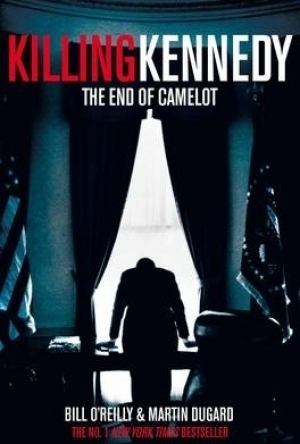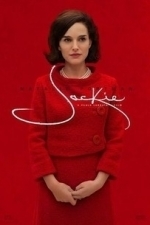Search
Search results
Alison Pink (7 KP) rated Killing Kennedy: The End of Camelot in Books
Jan 15, 2018
I will be the first to admit that I am not a big fan of Bill O'Reilly's views on many things, but there is no arguing that he can write an excellent book. This is the second of his "Killing" series that I've read, the first being Killing Jesus. They were both wonderful & so easy to lose yourself in.
This particular book made me forget that I was reading about actual events. I was so immersed in the story. JFK & Jackie are fascinating people & their life together makes them all the more intriguing. This book isn't just about the assassination, but the years, months, & days leading up to that fateful day in November. Both for the Kennedy family & the Oswalds. I found myself at times, thinking, "No don't do that." Or, "Yes, listen to your gut & your advisors & cancel that trip." Almost hoping that somehow it would turn out differently, but knowing full well how it was going to end.
Despite knowing the end before even cracking the book open, I was hooked from the very first word. It is rare to read a non-fiction book that reads like a spy novel & political thriller. That's what makes the reader forget that the events really happened. It doesn't falter into all the conspiracy theories or speculation on the events leading up to it. It is remarkably well researched & based on the countless records, videos, transcripts, & documents from the era. This is a must read for anyone, even if you aren't fascinated with the Kennedys as I was.
This particular book made me forget that I was reading about actual events. I was so immersed in the story. JFK & Jackie are fascinating people & their life together makes them all the more intriguing. This book isn't just about the assassination, but the years, months, & days leading up to that fateful day in November. Both for the Kennedy family & the Oswalds. I found myself at times, thinking, "No don't do that." Or, "Yes, listen to your gut & your advisors & cancel that trip." Almost hoping that somehow it would turn out differently, but knowing full well how it was going to end.
Despite knowing the end before even cracking the book open, I was hooked from the very first word. It is rare to read a non-fiction book that reads like a spy novel & political thriller. That's what makes the reader forget that the events really happened. It doesn't falter into all the conspiracy theories or speculation on the events leading up to it. It is remarkably well researched & based on the countless records, videos, transcripts, & documents from the era. This is a must read for anyone, even if you aren't fascinated with the Kennedys as I was.
Bob Mann (459 KP) rated Jackie (2016) in Movies
Sep 29, 2021
Spoiler! Her husband gets shot.
“Jackie” tells the story of the spiralling grief, loss and anger of Jackie Kennedy driven by the assassination of JFK in Dallas in November 1963. Hopping backwards and forwards in flashback, the film centres on the first interview given by Jackie (Natalie Portman, “Black Swan”) to a ‘Time’ journalist (Billy Crudup, “Watchmen”, “Spotlight”).
Through this interview we flashback to see Jackie as the young First Lady engaged in recording a TV special for a tour of the White House: nervous, unsure of herself and with a ‘baby girl’ voice. This contrasts with her demeanour in the interview which – although subject to emotional outburst and grief – is assured, confident and above all extremely assertive. We live the film through Jackie’s eyes as she experiences the arrival in Dallas, the traumatic events of November 22nd in Dealey Plaza, the return home to Washington and the complicated arrangement of the President’s funeral.
This is an acting tour de force for Natalie Portman, who is astonishingly emotional as the grief-stricken ex-first lady. She nails this role utterly and completely. Having already won the Golden Globe for an actress in a dramatic role, you would be a foolish man to bet against her not taking the Oscar. (I know I said just the other week that I though Emma Stone should get it for “La La Land” – as another Golden Globe winner, for the Comedy/Musical category – and a large part of my heart would still really like to see Stone win it…. But excellent as that performance was, this is a far more challenging role.)
In a key supporting role is Peter Sarsgaard (“The Magnificent Seven”) as Bobby Kennedy (although his lookalike is not one of the best: that accolade I would give to Gaspard Koenig, in an un-speaking role, as the young Ted Kennedy).
Also providing interesting support as Jackie’s priest is John Hurt (“Alien”, “Dr Who”) and, as Jackie’s close friend, the artist Bill Walton, is Richard E Grant (“Withnail and I”, who as he grows older is looking more and more like Geoffrey Rush – I was sure it was him!).
Director Pablo Larraín (whose previous work I am not familiar with) automatically assumes that EVERYONE has the background history to understand the narrative without further explanation: perhaps as this happened 54 years ago, this is a bit of a presumption for younger viewers? Naturally for people of my advanced years, these events are as burned into our collective psyches as the images in the Zapruder film.
While the film focuses predominantly, and brilliantly, on Jackie’s mental state, the film does gently question (via an outburst from Bobby) as to what JFK actually achieved in his all too short presidency – ‘Will he be remembered for resolving the Cuban missile crisis: something he originally created?’ rants Bobby. In reality, JFK is remembered in history for this assassination and the lost potential for what he might have done. I would have liked the script to have delved a little bit further into that collective soul-searching.
This is a very sombre movie in tone, from the bleak opening, with a soundtrack of sonorous strings, to the bleak weather-swept scenes at Arlington cemetery. The cinematography (by Stéphane Fontaine, “Rust and Bone”) cleverly contrasts between the vibrant hues of Jackie’s “Camelot” to the washed-out blueish tones of the post-assassination events. If you don’t feel depressed going into this film, you probably will be coming out! But the journey is a satisfying one nonetheless, and the script by Noah Oppenheim – in a SIGNIFICANT departure from his previous teen-flick screenplays for “Allegiant” and “The Maze Runner” – is both tight and thought-provoking.
Overall, a recommended watch which comes with a prediction: “And the Oscar goes to… Natalie Portman”.
Finally, note that for those of a squeamish disposition, there is a very graphic depiction of the assassination from Jackie’s point-of-view…. but this is not until nearly the end of the film, so you are reasonably safe until then!
Also as a final general whinge, could directors PLEASE place an embargo on the logos of more than two production companies coming up at the start of a film? This has about six of them and is farcical, aping the (very amusing) parody in “Family Guy” (as shown here).
Through this interview we flashback to see Jackie as the young First Lady engaged in recording a TV special for a tour of the White House: nervous, unsure of herself and with a ‘baby girl’ voice. This contrasts with her demeanour in the interview which – although subject to emotional outburst and grief – is assured, confident and above all extremely assertive. We live the film through Jackie’s eyes as she experiences the arrival in Dallas, the traumatic events of November 22nd in Dealey Plaza, the return home to Washington and the complicated arrangement of the President’s funeral.
This is an acting tour de force for Natalie Portman, who is astonishingly emotional as the grief-stricken ex-first lady. She nails this role utterly and completely. Having already won the Golden Globe for an actress in a dramatic role, you would be a foolish man to bet against her not taking the Oscar. (I know I said just the other week that I though Emma Stone should get it for “La La Land” – as another Golden Globe winner, for the Comedy/Musical category – and a large part of my heart would still really like to see Stone win it…. But excellent as that performance was, this is a far more challenging role.)
In a key supporting role is Peter Sarsgaard (“The Magnificent Seven”) as Bobby Kennedy (although his lookalike is not one of the best: that accolade I would give to Gaspard Koenig, in an un-speaking role, as the young Ted Kennedy).
Also providing interesting support as Jackie’s priest is John Hurt (“Alien”, “Dr Who”) and, as Jackie’s close friend, the artist Bill Walton, is Richard E Grant (“Withnail and I”, who as he grows older is looking more and more like Geoffrey Rush – I was sure it was him!).
Director Pablo Larraín (whose previous work I am not familiar with) automatically assumes that EVERYONE has the background history to understand the narrative without further explanation: perhaps as this happened 54 years ago, this is a bit of a presumption for younger viewers? Naturally for people of my advanced years, these events are as burned into our collective psyches as the images in the Zapruder film.
While the film focuses predominantly, and brilliantly, on Jackie’s mental state, the film does gently question (via an outburst from Bobby) as to what JFK actually achieved in his all too short presidency – ‘Will he be remembered for resolving the Cuban missile crisis: something he originally created?’ rants Bobby. In reality, JFK is remembered in history for this assassination and the lost potential for what he might have done. I would have liked the script to have delved a little bit further into that collective soul-searching.
This is a very sombre movie in tone, from the bleak opening, with a soundtrack of sonorous strings, to the bleak weather-swept scenes at Arlington cemetery. The cinematography (by Stéphane Fontaine, “Rust and Bone”) cleverly contrasts between the vibrant hues of Jackie’s “Camelot” to the washed-out blueish tones of the post-assassination events. If you don’t feel depressed going into this film, you probably will be coming out! But the journey is a satisfying one nonetheless, and the script by Noah Oppenheim – in a SIGNIFICANT departure from his previous teen-flick screenplays for “Allegiant” and “The Maze Runner” – is both tight and thought-provoking.
Overall, a recommended watch which comes with a prediction: “And the Oscar goes to… Natalie Portman”.
Finally, note that for those of a squeamish disposition, there is a very graphic depiction of the assassination from Jackie’s point-of-view…. but this is not until nearly the end of the film, so you are reasonably safe until then!
Also as a final general whinge, could directors PLEASE place an embargo on the logos of more than two production companies coming up at the start of a film? This has about six of them and is farcical, aping the (very amusing) parody in “Family Guy” (as shown here).

